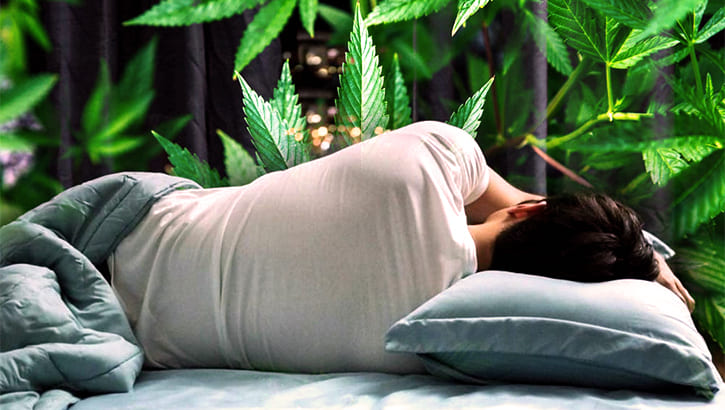New Study Connects Chronic Sleep Issues with Frequent Marijuana Use
It is widely believed that marijuana is an effective remedy for insomnia. Many thousands of people around the world claim that using marijuana containing both THC and CBD helps them fall asleep more easily. However, a new study published by a team of medical researchers from the University of Toronto reports that frequent marijuana use may actually be associated with certain chronic forms of sleep disorders.
In their analysis, the researchers used data from the U.S. National Health and Nutrition Examination Survey (NHANES), as well as information provided by the National Center for Health Statistics (NCHS) at the U.S. Centers for Disease Control and Prevention (CDC). Altogether, the collected data gave scientists information on more than 21,729 Americans who had experienced sleep problems in the past couple of years.
The goal of the analysis was to determine the quality of sleep among selected subjects and to compare this indicator with information about marijuana use by specific individuals. In the study, the researchers defined “healthy sleep” as sleep lasting 7-8 hours. Accordingly, sleep lasting 6 hours or less was marked as “short sleep,” while sleeping for 9 hours or more was considered “long sleep.” In addition, the authors also evaluated information about the pathogenesis of specific disorders in patients, such as the impact of sleep duration on quality of life, the speed of falling asleep and waking up, the ability to maintain sleep throughout the night, and similar factors.
As a result, it was found that among the subjects who actively used marijuana, about 34% experienced short sleep. On the other hand, 56% of this group complained of excessively long sleep. Similarly, members of this group were much more likely to report problems with falling asleep and maintaining sleep compared to those who did not use marijuana. Interestingly, despite these sleep issues and frequent marijuana use, consumers did not report a high level of daytime sleepiness.
“Undoubtedly, we see a connection between frequent marijuana use and worsening sleep quality, but we cannot say exactly how these deviations manifest,” the authors note. “Overall, it is interesting to point out that, despite marijuana’s reputation as an effective remedy for sleep-related disorders and insomnia, in practice, even occasional use of the plant can have noticeable consequences in terms of reduced sleep quality. It is especially noteworthy that other studies on this topic also reach mixed conclusions regarding the effectiveness of marijuana as a treatment for sleep disorders.”
The authors believe that this unusual phenomenon may be related to the gradual development of tolerance to the effects of cannabinoids in people who frequently use marijuana. In other words, substances that previously had a strong effect on sleep mechanisms may become less effective with regular use, causing their beneficial properties to gradually disappear and potentially leading to sleep problems rather than helping with them. In any case, this is just a hypothesis by the authors. Nevertheless, they note that if the described sleep problems occur while using marijuana, it is advisable to abstain from its use for a while to allow the body’s endocannabinoid receptors to recover sensitivity. Otherwise, attempts to use marijuana to improve sleep quality are likely to have the opposite effect on the user.



